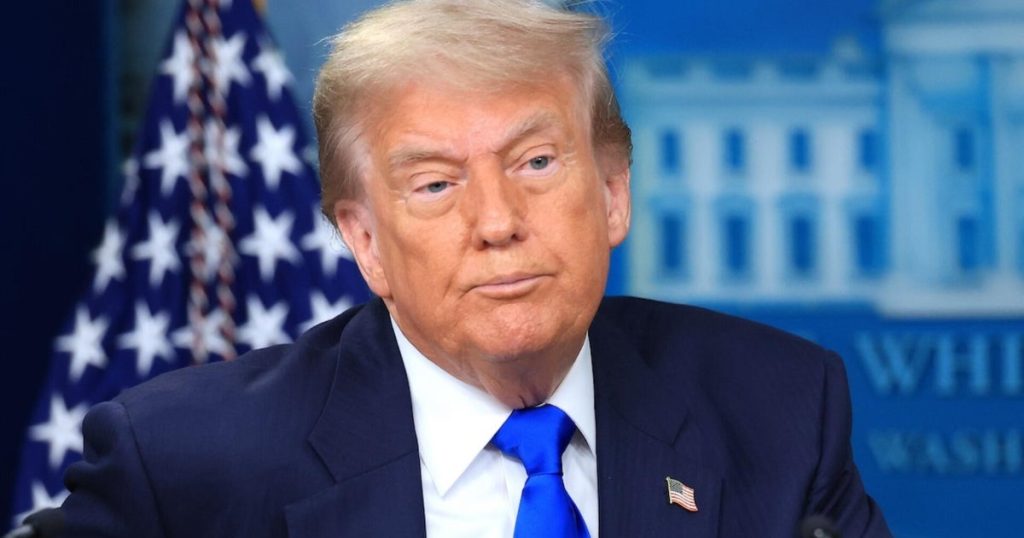In a significant shift in U.S. trade policy, President Trump announced a series of tariffs targeting over a dozen countries, aiming to address what he deems unfair trade practices. These new tariffs are set to begin on August 1 and affect various nations, including Japan, South Korea, and several others from both developed and developing backgrounds. The announcement has prompted immediate reactions in the stock market, which witnessed declines across major indexes as investors weighed the potential economic ramifications.
| Article Subheadings |
|---|
| 1) Overview of the New Tariffs |
| 2) Market Reactions to the Announcement |
| 3) The Broader Economic Implications |
| 4) International Responses and Trade Relationships |
| 5) Looking Ahead: Future Tariffs and Trade Policies |
Overview of the New Tariffs
On July 8, President Trump announced plans to impose tariffs on goods from 14 countries, highlighting his administration’s relentless pursuit of what he perceives as equity in trade. The list of affected nations includes well-established economies such as Japan and South Korea, along with developing nations like Bangladesh and Myanmar. Each country faces varying tariff rates, with some facing up to 40% duties, representing a decisive escalation in trade tensions. According to sources, these tariffs are scheduled to take effect starting August 1, creating a significant timeframe for affected countries to respond or renegotiate trade terms.
Market Reactions to the Announcement
Following the tariffs’ announcement, U.S. stock indexes reacted sharply. The S&P 500 dropped by 49 points, or 0.8%, closing at 6,230, and the Dow Jones Industrial Average sank by 422 points, or 0.9%, closing at 44,406. The declines indicate investor concerns regarding the risks posed by heightened trade tensions on economic growth. Analysts suggest that these tariffs could disrupt market stability, particularly since stocks have been on an upward trajectory following positive labor reports. The recent downturn serves as a stark reminder of how quickly investor sentiment can shift based on government policy changes.
The Broader Economic Implications
The implementation of these tariffs could have far-reaching effects on both domestic and global economies. Economists are urging caution, emphasizing that the long-term impacts may outweigh short-term market fluctuations. For one, increased tariffs could lead to higher prices for consumers and businesses relying on imported goods, slowing economic growth. Additionally, as Adam Crisafulli, head of Vital Knowledge, pointed out, the continued reliance on increased tariff revenues may place additional burdens on American consumers, particularly as fiscal imbalances grow. Analysts are warning that the full economic repercussions of these tariffs may not be immediately apparent but could become clearer over time.
International Responses and Trade Relationships
The announcement has elicited mixed reactions from the international community. Many of the countries targeted by the tariffs might seek to engage in diplomatic discussions to negotiate more favorable trade terms, while others may retaliate with their own tariffs on U.S. goods. For example, countries like South Africa and Japan may respond with measures aimed at protecting their own economic interests. The complexities of international trade relationships mean that these tariffs could trigger a ripple effect, leading to wider economic consequences that transcend borders. The unfolding situation will require careful monitoring and strategic diplomatic engagement.
Looking Ahead: Future Tariffs and Trade Policies
As the U.S. administration prepares for the tariffs to take effect, the potential for future impositions looms large. Trump has indicated an ongoing commitment to reassessing and altering trade agreements that do not align with what he perceives as America’s best interests. As a result, global markets must stay vigilant regarding potential new tariffs or shifts in trade policy, particularly concerning the BRICS nations and other developing economies. This situation reflects broader changes to the global economic landscape, with implications that could alter the trajectory of U.S. trade policy in the months to come.
| No. | Key Points |
|---|---|
| 1 | President Trump announced new tariffs affecting 14 countries. |
| 2 | Major U.S. stock indexes experienced significant declines following the announcement. |
| 3 | Economists predict that tariffs will have broader economic implications both domestically and internationally. |
| 4 | International reactions range from potential negotiations to possible retaliatory measures. |
| 5 | The possibility of future tariffs remains likely as the U.S. reassesses its trade policies. |
Summary
The newly announced tariffs by President Trump reflect ongoing tensions in international trade, signaling a continued push for policies that the administration believes will rectify trade imbalances. While immediate market reactions indicate concern, the long-term effects of these tariffs on both the U.S. and global economies remain to be seen. Attention will now turn toward international responses and how the evolving trade landscape will shape economic relationships in the future.
Frequently Asked Questions
Question: What are the new tariffs about?
The new tariffs, announced by President Trump, will target goods from 14 countries with varying rates, aimed at addressing perceived unfair trade practices.
Question: When do the tariffs take effect?
These tariffs are scheduled to take effect on August 1.
Question: How have the markets reacted to the announcement?
Following the announcement, major U.S. stock indexes, including the S&P 500 and Dow Jones, experienced significant declines, indicating investor concerns.


